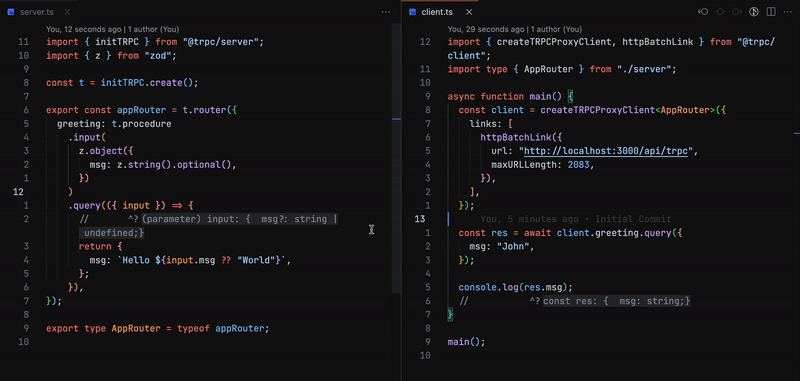
tRPC
End-to-end typesafe APIs made easy

@trpc/next
Connect a tRPC router to Next.js.
Documentation
Full documentation for @trpc/next can be found here
Installation
npm install @trpc/next @trpc/react-query @tanstack/react-query
yarn add @trpc/next @trpc/react-query @tanstack/react-query
pnpm add @trpc/next @trpc/react-query @tanstack/react-query
bun add @trpc/next @trpc/react-query @tanstack/react-query
Basic Example
Setup tRPC in utils/trpc.ts.
import { createTRPCNext, httpBatchLink } from '@trpc/next';
import type { AppRouter } from '../pages/api/[trpc].ts';
export const trpc = createTRPCNext<AppRouter>({
config() {
return {
links: [
httpBatchLink({
url: 'http://localhost:3000/trpc',
}),
],
};
},
ssr: false,
});
Hook up tRPC inside _app.tsx.
import { trpc } from '~/utils/trpc';
const App = ({ Component, pageProps }) => {
return <Component {...pageProps} />;
};
export default trpc.withTRPC(App);
Now you can query your API in any component.
import { trpc } from '~/utils/trpc';
export function Hello() {
const { data, error, status } = trpc.greeting.useQuery({
name: 'tRPC',
});
if (error) {
return <p>{error.message}</p>;
}
if (status !== 'success') {
return <p>Loading...</p>;
}
return <div>{data && <p>{data.greeting}</p>}</div>;
}
Server components
See https://trpc.io/docs/client/react/server-components




